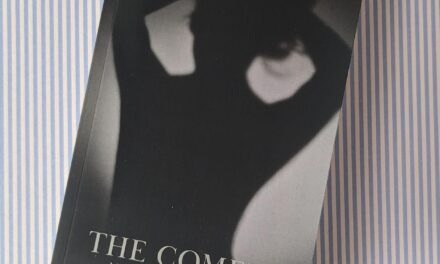I don’t know if it’s just me but, six months ago I’d never heard of Percival Everett. Suddenly he is everywhere.
A friend recommended his book The Trees, a satirical novel (which narrowly missed out on the Booker prize in 2022) about lynching. On paper, it doesn’t sound good, but it’s brilliant. Then I went to see the smart and funny film American Fiction, based on Everett’s novel Erasure (for which director Cord Jefferson won a 2024 Oscar for best adapted screenplay) and which sent me immediately to seek out that book. And he recently popped up on Radio 4’s Today programme talking about his latest novel, James.
I have no idea why it took me so long to ‘discover’ Everett – his first novel was published in 1983 and he has since produced more than two dozen – but how fortuitous that my discovery coincided with Manchester Literature Festival bringing him to Manchester to promote James in the beautiful surroundings of Central Library.
Everett did not disappoint. He talks in a low gravelly yet velvety tone reminiscent of Tom Waits. Most of the chat inevitably revolved around his latest book, that I am yet to read, but it also touched on his favourite subjects: language and the revolutionary power of reading.
The book is inspired by Mark Twain’s Huckleberry Finn. The eponymous James is Huck’s fellow traveller Jim, a slave escaping his enslavement. Host Erica Wagner asked what had led him to write this book.
“It wasn’t a burning need to write Huck Finn from the point of view of Jim,” he said. “But three years ago I was playing tennis and I knocked the ball wildly out of court and I stood there watching it sing on and I thought, ‘Has anyone told Huck Finn from the point of view of Jim?’ Which of course explained to me why I had hit the ball so poorly.”

Photo by Susan Ferguson
Everett went on to explain that he read Huckleberry Finn from cover to cover 15 times in succession to free himself from Twain’s language and from the text of the novel by simply making himself sick of it. Then he put it down and embarked on his novel without looking back at that text. He sees James not as a corrective of the original story, more as a conversation with its author Twain, whom he admires as a writer.
Everett has also moved the events from the 1830s, when Twain’s book is set, into the future. Wagner asked why he had done this, and to much laughter he replied: “For a certain storyline, I needed it to happen just as the Civil War began. And it turned out, it was easier to move my characters than to move the war.”
Everett is a lovely writer to listen to. He doesn’t really go back to his books after they are published. He sees himself like a “mother bear” in that once the books are done, he throws them out into the wild to see if they can survive. It’s not that he doesn’t want to see them again, just that “they are not coming back to the den to live”.
All of his books are different but they all share a large dose of irony. Everett admits that he can’t help going strong on irony and that he sees humour as a way to disarm people, admitting that once disarmed, you can “go in at them with anything”.
He talks eloquently about the use of the ‘N’ word (both in his book and in the original Huckleberry Finn). “Ironically, the presence of that word makes perfect sense in the story. Without it, it would be impossible to understand the character of the people who were oppressing Jim.”
And on the banning and censoring of books? “Let’s face it, the people seeking to ban books either can’t read, or don’t read. The most subversive thing is to read.”
What a delight not having to wait for a novelist’s next novel. There is already an entire shelf-full written and waiting to be devoured.
Percival Everett was appearing as part of Manchester Literature Festival’s spring talks








